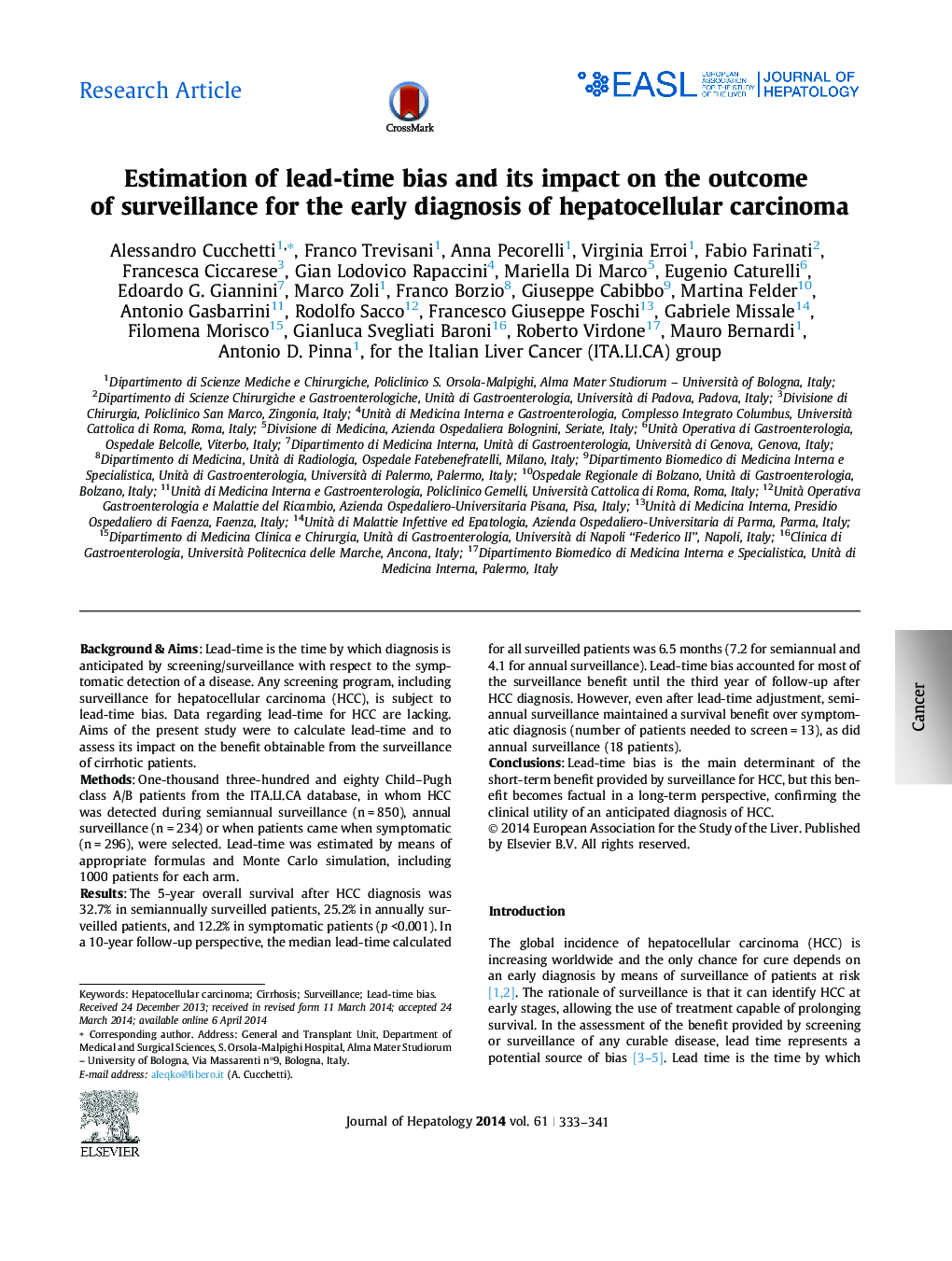| کد مقاله | کد نشریه | سال انتشار | مقاله انگلیسی | نسخه تمام متن |
|---|---|---|---|---|
| 6103489 | 1211129 | 2014 | 9 صفحه PDF | دانلود رایگان |
Background & AimsLead-time is the time by which diagnosis is anticipated by screening/surveillance with respect to the symptomatic detection of a disease. Any screening program, including surveillance for hepatocellular carcinoma (HCC), is subject to lead-time bias. Data regarding lead-time for HCC are lacking. Aims of the present study were to calculate lead-time and to assess its impact on the benefit obtainable from the surveillance of cirrhotic patients.MethodsOne-thousand three-hundred and eighty Child-Pugh class A/B patients from the ITA.LI.CA database, in whom HCC was detected during semiannual surveillance (n = 850), annual surveillance (n = 234) or when patients came when symptomatic (n = 296), were selected. Lead-time was estimated by means of appropriate formulas and Monte Carlo simulation, including 1000 patients for each arm.ResultsThe 5-year overall survival after HCC diagnosis was 32.7% in semiannually surveilled patients, 25.2% in annually surveilled patients, and 12.2% in symptomatic patients (p <0.001). In a 10-year follow-up perspective, the median lead-time calculated for all surveilled patients was 6.5 months (7.2 for semiannual and 4.1 for annual surveillance). Lead-time bias accounted for most of the surveillance benefit until the third year of follow-up after HCC diagnosis. However, even after lead-time adjustment, semiannual surveillance maintained a survival benefit over symptomatic diagnosis (number of patients needed to screen = 13), as did annual surveillance (18 patients).ConclusionsLead-time bias is the main determinant of the short-term benefit provided by surveillance for HCC, but this benefit becomes factual in a long-term perspective, confirming the clinical utility of an anticipated diagnosis of HCC.
Journal: Journal of Hepatology - Volume 61, Issue 2, August 2014, Pages 333-341
